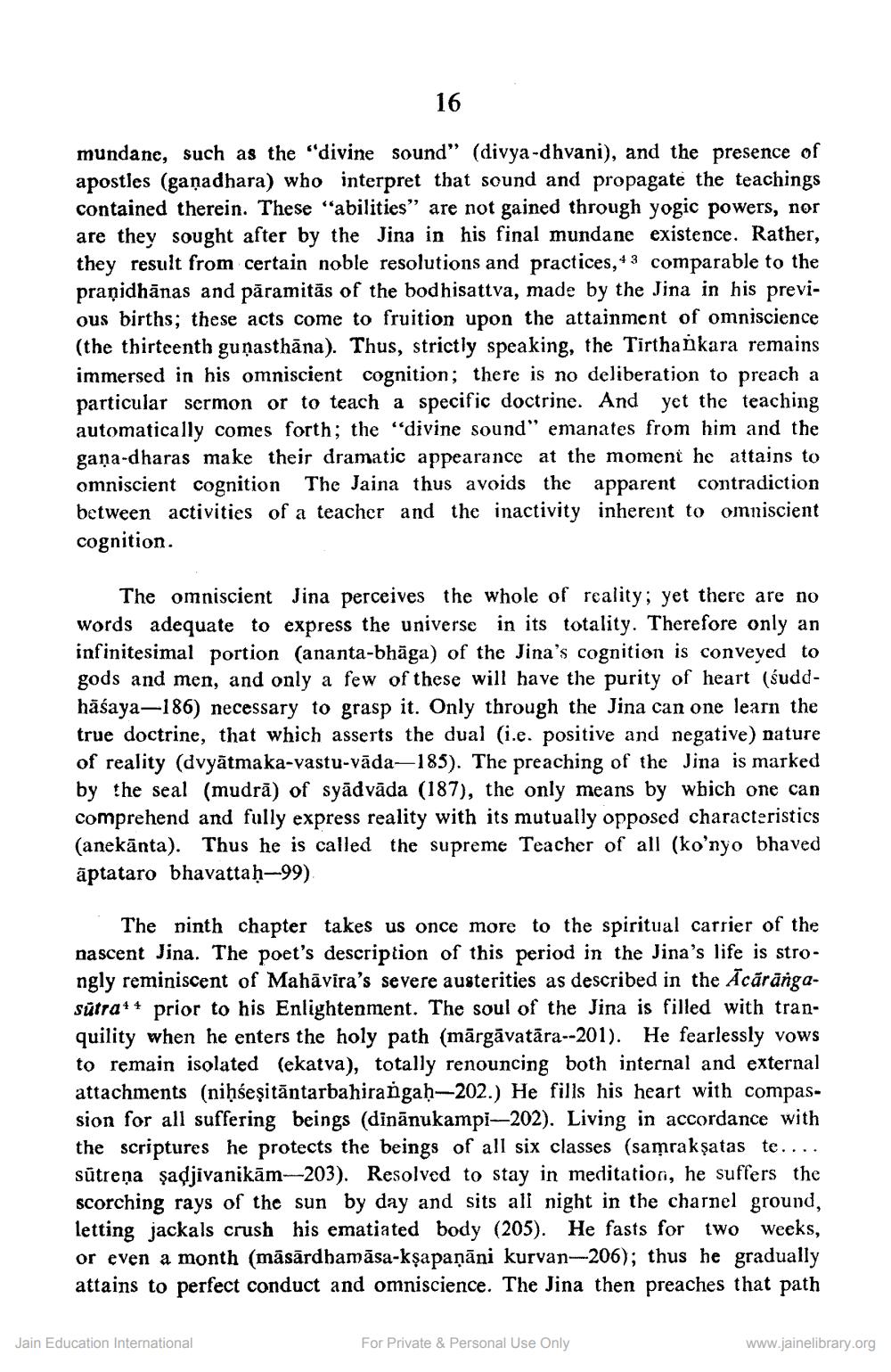________________
16
mundane, such as the "divine sound" (divya-dhvani), and the presence of apostles (gañadhara) who interpret that sound and propagate the teachings contained therein. These "abilities” are not gained through yogic powers, nor are they sought after by the Jina in his final mundane existence. Rather, they result from certain noble resolutions and practices, + 3 comparable to the pranidhānas and pāramitās of the bodhisattva, made by the Jina in his previous births; these acts come to fruition upon the attainment of omniscience (the thirteenth gunasthāna). Thus, strictly speaking, the Tirthankara remains immersed in his omniscient cognition, there is no deliberation to preach a particular sermon or to teach a specific doctrine. And yet the teaching automatically comes forth; the "divine sound" emanates from him and the gaņa-dharas make their dramatic appearance at the moment he attains to omniscient cognition The Jaina thus avoids the apparent contradiction between activities of a teacher and the inactivity inherent to omniscient cognition.
The omniscient Jina perceives the whole of reality; yet there are no words adequate to express the universe in its totality. Therefore only an infinitesimal portion (ananta-bhāga) of the Jina's cognition is conveved to gods and men, and only a few of these will have the purity of heart (suddhāśaya-186) necessary to grasp it. Only through the Jina can one learn the true doctrine, that which asserts the dual (i.e. positive and negative) nature of reality (dvyātmaka-vastu-vāda—185). The preaching of the Jina is marked by the seal (mudrā) of syādvāda (187), the only means by which one can comprehend and fully express reality with its mutually opposed characteristics (anekānta). Thus he is called the supreme Teacher of all (ko'nyo bhaved āptataro bhavattah-99)
The pinth chapter takes us once more to the spiritual carrier of the nascent Jina. The poet's description of this period in the Jina's life is strongly reminiscent of Mahāvira's severe austerities as described in the Açărăngasutra+ prior to his Enlightenment. The soul of the Jina is filled with tranquility when he enters the holy path (mārgāvatāra--201). He fearlessly vows to remain isolated (ekatva), totally renouncing both internal and external attachments (ni)seşitāntarbahirangah-202.) He fills his heart with compassion for all suffering beings (dinānukampi-202). Living in accordance with the scriptures he protects the beings of all six classes (samrakşatas te.... sūtreņa şadjivanikām-203). Resolved to stay in meditation, he suffers the scorching rays of the sun by day and sits all night in the charnel ground, letting jackals crush his ematiated body (205). He fasts for two weeks, or even a month (māsārdhamāsa-kşapaņāni kurvan-206); thus he gradually attains to perfect conduct and omniscience. The Jina then preaches that path
Jain Education International
For Private & Personal Use Only
www.jainelibrary.org




